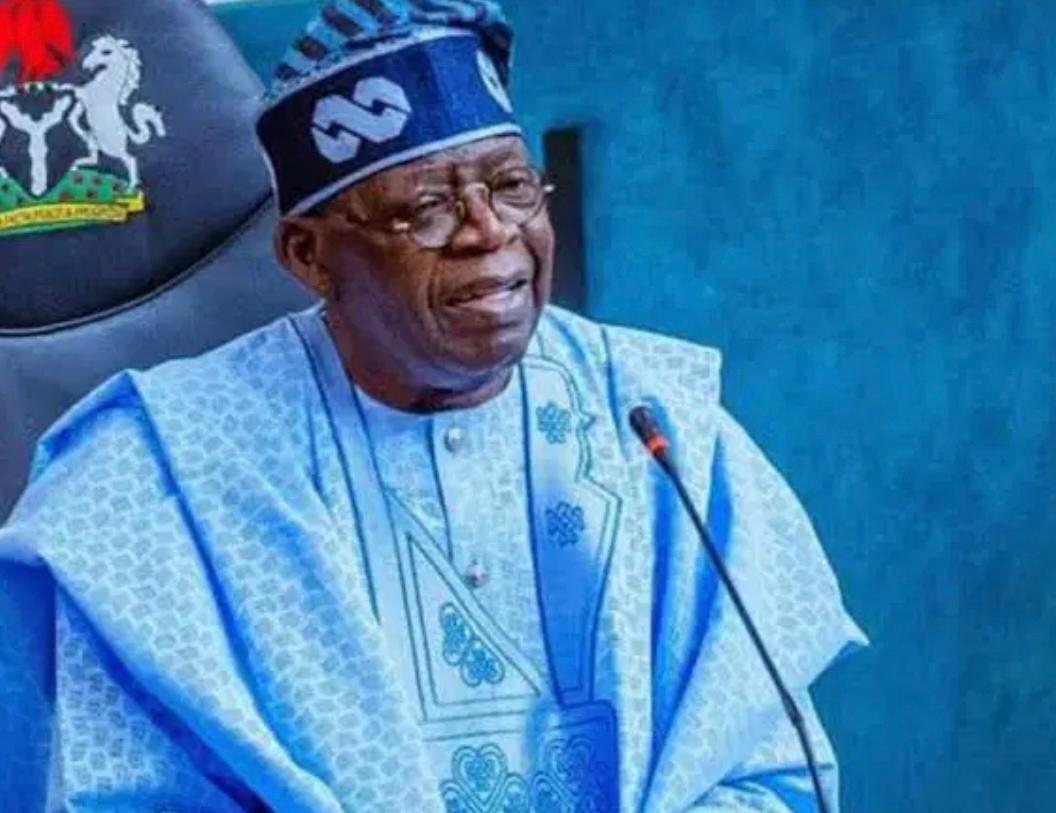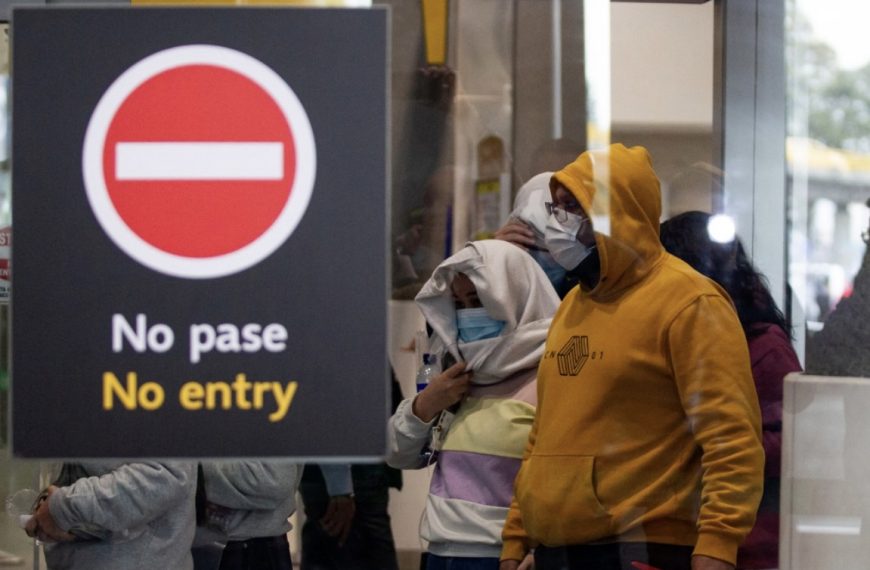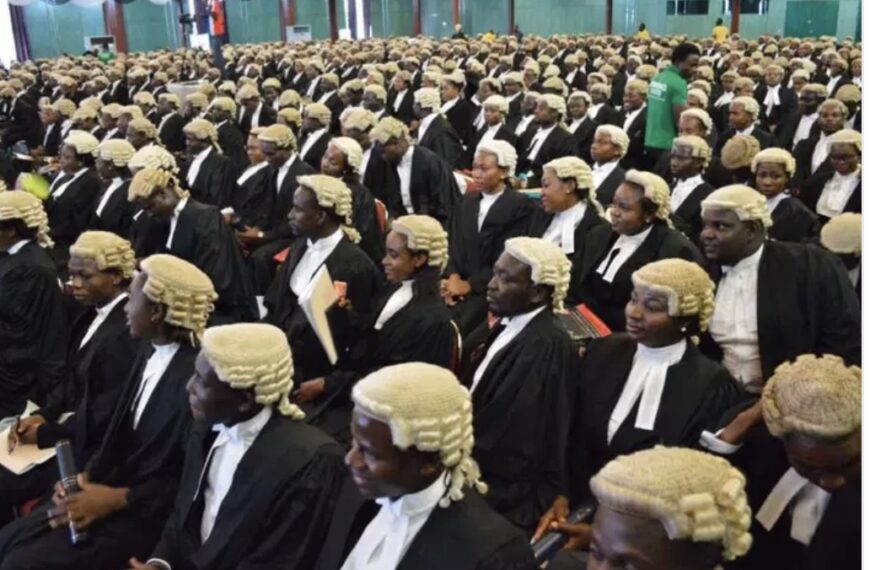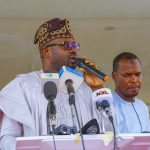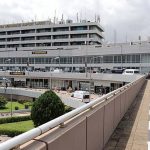By Dr. Dele Sobowale
“This is not the end. It is not even the beginning of the end. But, it is perhaps the end of the beginning.” Winston Churchill, 1874-1965, British Prime Minister.
Since this series started four years ago, the year 2025 would be the most difficult to forecast in many respects.
The outgoing year was challenging enough; because it was the first full year that Tinubu would preside over and the tendencies of this government became known with respect to fiscal and monetary policies management.
It will also the year when the government’s faithfulness to the RENEWED HOPE would be revealed. Thereafter, it might become easier to guess what follows the foundation laid this year.
In many respects, 2024 has been a year dominated by eight economic variables:
•Budget 2024.
•exchange rate/interest rate
•fuel supply and prevailing prices
•crude production and esport
•inflation
•food supply
•manufacturing
•cash supply
The year started with them as major obstacles to our economic progress and social advancement. When the year ends in three days time, one indisputable result will have been registered for history. Nigerians, in the aggregate, would have ended 2024 poorer than when they started it.
More frightening is the fact that 2024 precedes another year when the vast majority of the people will become poorer; just as the wealthy are getting richer.
The top one per cent of the population are sucking the life-blood out of the 99 per cent; while expecting their fellow citizens to clap.
Banking, which, at its inception, was set up to grow economies and spread the resulting wealth has almost become an institution established for the sole purpose of enriching bankers. Nothing more.
The reported results prove beyond reasonable doubt that banks have become an oasis of wealth in an entire nation in search of water to drink.
REVIEW OF THE OUTGOING YEAR AND THE PREDICTIONS WE MADE
“I am incredibly bad at predicting the future. I am only smart enough to observe the present; listen to my intuition about tendencies.” Rem Koolhaas.
Unlike Koolhas, I not always rely on my intuition about tendencies. Ever since taking a Summer Course on FUTURISM, in Boston, in 1970, particularly on macro-economic forecasting, I have developed my own model for forecasting the future – which has served me well till today.
At the heart of each year’s forecast is a year-long collection of data and other relevant pieces of information about trends in the economy. It is only half a joke when reference is made to UniJankara.
We actually have a bunch of guys who read up to seven papers a day; and watch television programmes as well. We undertake our own collation of data for analysis and trend forecasts. And, we work on only a few indices which we believe hold the key to results expected.
Nobody or group or company can be 100 per cent accurate about future predictions. So, we have no reason to apologise for what we got wrong during the year. Below is a quick summary of what we predicted for 2024 in December
Perhaps now, leaders of the public and private sectors will henceforth take us seriously. A lot of companies, especially in food and beverages face closure.
Budgets 2023 and 2024 Compared
Year Ntn $bu Rate applied
2023 21.4 47.39 N450/US$1
2024 27.5 36.67 N750/US$1
The 2023 Budget was later amended with a Supplementary appropriation to bring the total to N24.82 tn.
Obviously, in more stable dollar terms, the 2024 Budget is 23 per cent less than the 2023 Budget.
Crude Oil Estimate.
Crude estimate might not be achieved. Exports will average less than 1.6mbpd.
Exchange Rate:
Expect more devaluation.
Inflation:
Certainly above 30 per cent.
Scarcity of everything:
Expect scarcity of everything; scarcity of dollars, scarcity of fuel, scarcity of power supply, scarcity of food, scarcity of jobs, scarcity of cash in the banks.
Manufacturing decline imminent:
Departure of GSK, P&G is only the beginning. Manufacturing decline is imminent in 2024.
FDI declines further:
Few new investments to be expected as the impact of devaluation is felt.
Deficit/Loans will burden debt- repayment:
The nation will end the year with a bigger deficit than envisaged; and more loans will have to be taken; altogether creating a heavier debt burden.
Power supply:
There is no provision in the 2024 Budget for significant improvement in power supply in 2024.
Fuel supply and prices:
Despite the widespread hope that Dangote Refinery and the Port Harcourt Refinery would come on stream and crash fuel prices to less than N600/litre; we boldly predicted that fuel prices would range between N700-1200 in 2024. As we end the year, the price ranges between N1100 in Lagos and N1,200 in the North East.
Renewed Hope? Forget it.
WHAT WAS THE OUTCOME?
“Even God cannot change the past.” Agathon, 447-401 BC.
By the time you read this article, 2024 will have largely become the past. It is unlikely that any of the major variables, except the volatile exchange rate, would change the outcome for the year.
A few reports available to all of us will indicate that the year 2024 will end with the situation as follows:
•National Assembly under fire as Nigeria’s debt hits NI3Stn
•FOODSTUFF TRANSPORTERS: Expect soaring food this month and next year.
•Nigerians groan as cash scarcity compounds hardship
•Muted growth in the manufacturing sector threatens $ltrn GDP target
•MAN
•Seplat is nearing an acquisition of $800m in Mobil.
•Oil production hits 1.7mbpd – FG.
That was in November. For most of the second and third quarters, the production was less than 1.4mbpd. The average for 2024 will be less than 1.6mbpd irrespective of what happens in December.
•Finally, “Blackout as national grid collapses 11 times in 2024.”
That summarises the results for 2024. Judge the accuracy for yourself.
WHAT TO EXPECT IN 2025
“A riddle wrapped in a mystery inside an enigma.” Sir Winston Churchill, The late British Prime Minister was not referring to Nigeria and its economy in 2025.
But, that description fits the situation confronting us next year. The budget submitted to the National Assembly, NASS, symbolises some of the defects characterising budgets at the Federal and state levels which invariably doom them to failure.
Every budget, since 1999, had started with unrealistic estimates of crude production and export resulting in unfavourable variances in actual revenue generation right from January l of each year.
Budget 2025 is founded on the same unrealistic assumptions as the others. Nobody, or nation, doing the same thing over again can expect a different result.
The Budget for 2025 presents several new puzzles, difficult to unravel because the aggregate revenue estimates had been based on the quick passage of the Tax Bills sent to the NASS by the FG in the fourth quarter. Clearly, given the stiff opposition to the Tax Bill, it will not be passed as presented – if at all – and the revenue stream expected will not be forthcoming. Furthermore, the FG has once again based the budget on the production of 2.06mbpd of crude at $77 per barrel.
The evidence available would indicate that the quantity and price projections are off the mark once again; raising the possibility of a bigger deficit and more borrowing than envisaged.
Finally, the budget assumed an exchange rate of N1400/S and inflation at 21 per cent. Only the government’s own financial experts can believe those figures.
While there are many uncertainties, which will be touched on presently, there is one certainty – which will be the starting point of this set of forecasts.
DEEPENING POVERTY INESCAPABLE
“Whenever a man prays, he prays for a miracle; every prayer reduces itself to this; Great God grant that twice two be not four.” Ivan Turgenev, 1818-1883.”
Nigerians are known to be among the most prayerful people on Earth. Three days of fasting and praying are frequently organised to call for Divine intervention in our affairs. Well, we need more prayers now because of worsening poverty. The combination of budget, exchange rate and likely inflation point to these:
Why Nigerians are getting poorer
The 2023 Budget was the most dishonest in history. By November 2022, the exchange rate at the parallel market was already close to #700 / $.
MINIMUM WAGE
Obviously, if the FG’s projections are accepted, the writing on the wall says MORE POVERTY in 2025. Unfortunately, every worker will not receive the approved N70,000 per month. Look again. Even the workers in the states paying the Minimum Wage, $45 per month, are now guaranteed to dive below the poverty line – defined as living on $2 a day or $60 a month. The horrors awaiting millions excluded from MW is unimaginable because it will be unprecedented.
CRUDE OIL PRODUCTION: THE ELEPHANT IN THE ROOM
“Stop the habit of wishful thinking and start the habit of thoughtful wishes” – Mary Martin
If there is one variable on which Nigerian Presidents have demonstrated a great deal of wishful thinking, crude oil production and export estimates in the budgets are the leading candidates. It is amazing that a Nigerian President, would present a first budget – projecting 2mbpd – and fail to deliver.
He would present the second based on the same figure and fail again and the NASS would accept the third from him based on the same bogus figure.
When President Tinubu announced a few weeks ago that Nigerians have been living beyond our means, he was absolutely correct.
He only forgot to mention that the FG and state governments were setting the bad examples for the people.
Because the actual crude production and export will again shred the Budget 2025, even before the NASS starts the wasteful exercise of considering it, listed below are the reasons 2.06mbpd constitutes wishful thinking at its worst.
•OPEC has pegged Nigeria’s quota until 2026 at 1.5mbpd.
•China, the world’s largest importer of crude oil will sharply reduce crude imports for 2025.
•The US plans 20 per cent reduction in crude imports In Europe, China, Japan, Americas, nations and vehicle manufacturers are racing away from fossil fuel powered vehicles and power-generation. The market for fossil fuel is shrinking and Nigeria is hanging on to a straw.
•A report by Charles Kennedy, published December 12, 2024 summarises our predicament. Based on an International Energy Agency, IEA, report, the problems facing us are the following: global surplus of crude oil of 950,000bpd…even if OPEC+ maintains curtent levels; non-OPEC producers, US, Brazil, Canada to significantly increase production; and, potential over-supply could lead to lower oil prices and impact the revenue of oil-producing countries.
•Clearly, the 2.06mbpd cannot be realistic. The Minister of State for Petroleum, recently announced that despite OPEC quota restrictions, will still produce 2.06mbpd – by increasing condensate output. Typical self-deceit from officialdom. Where is the guaranteed demand for 500,000bpd condensate? And is Nigeria the only condensate producer.
•To be candid, Nigeria will be extremely fortunate to average 1.5mbpd in 2025; and out of that we have committed unknown quantity to debt repayment.
EXCHANGE AND INTEREST RATES
Here again, we are confronted with escapism of the worst kind. Exchange rate used in the budget was N1400/S. In the second week of December, exchange rate started tumbling in favour of the naira, after the CBN introduced another initiative.
The trend lasted four days before turning back up. The volatility is still being experienced at the moment; leading to questions about what to expect in 2025.
To be honest, this is the biggest challenge facing forecasters. The most important question is: will the rate drop to N1400/S? The answer to that is easy.
No. What should be expected? That is more difficult. But, the guess is N1700-1800/$ at least.
The FG, state and local governments are working at cross-purposes with regard to exchange rate. While the FG had projected N1400/S for 2025, it is almost certain that the states and LGs would not welcome that rate; because it will definitely reduce their naira allocations – which are currently insufficient to meet their financial needs. Already, most of the states are trying to wriggle out of paying the promised Minimum Wage at current rates. Only two will be able to pay if rates drop to N1400/S.
Interest rate is easier to predict. It will go up because inflation will remain above 30 per cent. Scarcity of everything will again result in escalation of prices and more FG borrowing will drive up rates by crowding out private borrowing.
FUEL SUPPLY AND PREVAILING PRICES
Nigerians will confront a dilemma with regard to fuel supplies and prices. We will have to decide whether to remain stubbornly patriotic; and pay more for fuel; or to opt for best prices available. The two are mutually exclusive. Despite Dangote Refinery coming on stream and the Portharcourt refinery blending and supplying, fuel price has not crashed as expected. There might be slight but no significant price reduction unless we allow continuing imports. The reason is simple.
Despite sitting on top of crude supply, all Nigerian producers, especially NNPCL refineries, are high cost producers. What they pay for power nullifies the comparative advantage of having crude source close to the plant. NNPCL’s plants suffer the additional disadvantage of size.
Large refineries abroad enjoy economy of scale, they are also more technologically advanced compared to our museum pieces.
If we want fuel at the lowest possible price in 2025, there is no alternative other than to supplement domestic production with imports.
FOOD SUPPLY
“…state faces a food crisis next year” – First Lady of a major food basket.
The First Lady of one of Nigeria’s food basket states raised the alarm in the second week of December. Her husband has been one of the most aggressive in investing heavily in increased food production. He had bought tractors and other farm equipment; increased funding for fertilisers and farm support personnel.
All of these would ordinarily have raised hope of significantly higher productivity. Every positive initiative had, however, been nullified by one negative impact – insecurity. Just when the known insurgents and herdsmen were being subdued, a foreign terrorist group had stepped in to renew attacks.
The North Central State is not alone in this predicament. Zamfara and Katsina States are also feeling the heat; while, in Borno State, the dam collapse which devastated Maiduguri and environs has not been repaired. That leaves a major gap in water supply for irrigation farming.
The South East, though not a major food producer, continues its decline in food production. Violence-enforced Stay at Home orders have turned farming into a suicide mission.
Meanwhile, as the year ends the population would have increased by 6 million.More mouths to feed and less food with which to feed them have induced more smuggling, particularly of rice – with very little attempt to stop the influx of foreign rice. Despite that, prices have gone up. There is no end in sight.
MANUFACTURING
“An economy can only be as strong as its manufacturing base” – Akio Morita, Harvard Business Review, May-June 1992.
This statement has been repeated several years since it was first published in 1992 – the year of the first NESG meeting in Abuja.
Nigerian leaders, in private or public sectors, have failed to heed the implied warnings. As we enter 2025, Nigeria’s manufacturing sector is facing its worst crisis.
Lafarge changed major investor in a sort of clearance sale. Unilever handed the baton to a Nigerian as Chief Executive Officer – in a move some experts on divestment see as a prelude to departure. Manufacturing at its Oregun plant is crawling to a stop.
Unfortunately, that is not all. One of the biggest in the food and beverage sector is also getting set to decamp. Three or four of its leading brands are no longer produced regularly and its domestic suppliers have been placed on quiet notice that their inputs might soon not be needed.
A trip to any supermarket will reveal how many brands of pasta, sugar, seasonings, soap, bleach etc have vanished. The future is bleak.
CASH SUPPLY
“Business booms for naira traders as bankers collusion worsens scarcity” – Report, December 14, 2024.
A few days before that report, the NASS had characteristically ordered the CBN to end cash scarcity. The CBN has also announced that closer monitoring of banks will be embarked upon. Economic, like other witch doctors, proffer solutions for problems they have not adequately investigated.
In reality, the most important question is: why are Nigerians no longer depositing cash in banks? A corollary to that is: what would happen for Nigerians to return to saving money in banks?
From information available to us, based actually on interviews with all sorts of people around the Jankara, Dosumu, Idumota, Oyingbo and Alaba markets, the CBN’s approach to cash scarcity would make the problem worse.
There are two aspects to the cash scarcity problem which are not being addressed. One is actually a security issue – which cannot be disclosed here. Unless the CBN and the Department of State Services, DSS, tackle that, nothing done will work.
TAX BILLS
Finally, the tax bills, on which a great deal of the revenue projections depend will most certainly not be passed as planned by government, given the strong opposition to it; and it may also not be passed in time to avert wider deficit than planned. The proposed increase of Value Added Tas, VAT, and the suggested disbursement have become so contentious; they threaten the unity of the country.
With a Northern majority in both chambers of the NASS; and the majority of Northern leaders opposed to the core of the Bills, it is extremely difficult to predict what 2025 will bring – except, more hardship.
BREAKING NEWS. “Rising food prices drive inflation to 34.6% high in November.” It is unlikely that the rate for December will be lower. Thus, we will step into January 2025 with inflation above 34%. Who believes we can drive it down to 21 per cent?
Have a Happy New Year – if you can. Follow me on Facebook @ J Israel Biola.

